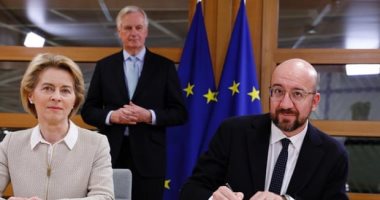The European Union emphasized the importance of ensuring the protection of religious heritage sites and places of worship, especially when groups of people gathered in these places face threats, strongly condemning all acts of unlawful destruction of cultural heritage, often committed during or in the aftermath of armed conflict around the world, or As a result of terrorist attacks, it urges all parties to armed conflict to refrain from any unlawful military use or targeting of cultural property.
And the solidarity of the European Union – according to a statement, today, Monday; To commemorate the International Day of Victims of Acts of Violence Based on Religion or Belief, which falls on August 22 of each year – with all victims of persecution, wherever they may be.
He added that in these times of armed conflict and humanitarian crises around the world, individuals, including those belonging to minority groups, continue to be discriminated against, persecuted, targeted, killed, detained, expelled or forcibly displaced because of their religion or beliefs, and today is An opportunity to highlight their situation.
He continued: All countries must uphold freedom of religion or belief in line with international human rights law, and must lift illegal restrictions and end incitement to violence or hatred, forced transfers, online and offline defamation campaigns, and hate speech, including against persons belonging to minorities. religious or ideological.
During the statement, the European Union highlighted its efforts to continue providing emergency support to human rights defenders, in particular those who defend freedom of religion or belief including through the “ProtectDefenders.eu” mechanism, while calling on all parties involved in armed conflicts in all around the world to ensure full, unimpeded and unconditional access to humanitarian actors providing assistance to people belonging to religious or belief minority groups, and to encourage interreligious and intercultural dialogue as an engine of mutual understanding and respect for diversity, peaceful coexistence and inclusive development.

